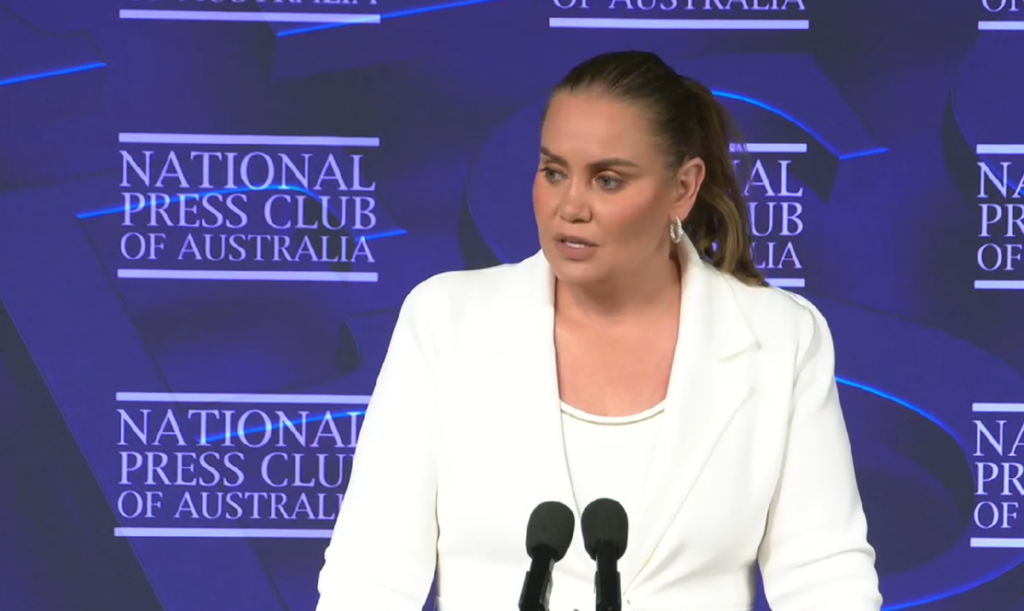
Former world number four tennis champion Jelena Dokic has spoken about how being vulnerable and sharing her story has helped her to overcome the years of abuse she faced at the hands of her father. In 2017, Dokic revealed in her memoir that her father physically and emotionally abused her as a child and throughout her tennis career. Speaking at the National Press Club in Canberra on Wednesday, Dokic said finding her voice and speaking her truth saved her life.
“Vulnerability has allowed me to really be open about everything that I’m going through,” she said. “We need to create safe spaces and environments for people to be themselves, for people to be imperfectly perfect, for people to be vulnerable, because vulnerability saves lives. “With vulnerability, we tell the truth.

We share stories. Victims and survivor stories are our biggest lessons.” Dokic said that her father’s aggressive behaviour was never called out at the time of the abuse.
“In fact, it was made fun of. It was all over the papers as a joke. There was no concern for two underage kids going home to this person.
” Dokic said she had been personally inspired by the likes of Grace Tame and US athlete Simone Biles, who have both bravely shared their stories in recent years. “There’s been incredible women that have changed the world with vulnerability,” she said. “Grace Tame was a huge inspiration of mine, and the other women together with her, that have told their stories with such strength and such courage.
” “Even just recently, the French woman, Gisèle Pélicot, and how she showed such bravery going through and telling her story, making it public.” Dokic also called out the culture of silence in sport and in society that keeps people from feeling like they are able to open up about the issues they are facing. “If you ever talked about anything that resembled any kind of weakness – eating disorder, mental health struggles, abuse – you straight away felt like you were giving this edge away to your opponent.
But even more so, you felt like you were not worthy and like you were weak when it came to fans, media, sponsors,” she said. “So everyone kept quiet. So many athletes suffered.
But no one said anything, nobody spoke up. Society was the same. So not to be judged, not to be shamed, and not to be stigmatised, no one said anything.
So people were here, athletes were here, society was here, suffering in silence. But what is here on the other end of the spectrum? It’s deaths, and we hear about them all the time. “We hear about them every day and how many times have we said ‘had no idea’? ‘Didn’t see it coming.
’ ‘Did I miss something?’ ‘How could that have happened?’ ‘I didn’t see anything.’ Of course we didn’t, because we are so good at suffering in silence.” After her career as a player, Dokic has gone on to find success as a tennis commentator.
In her address at the Press Club, she spoke about the body shaming that has followed her online. “Even as a commentator, being a speaker and so on..
.I didn’t think that that much spotlight would even be put on me. Oh, was I wrong? The trolling, the online abuse, from comments telling me to go and take my own life, to being judged for being a size 20 but then if I’m a size four, it’s also not okay,” she said.
Dokic finished her speech with a call to action, imploring those listening to support victim-survivors and to create safe spaces. “Please. Let’s not be silent about things.
Let’s create safe spaces and environments. Let’s support people. Most importantly, the day that we stop talking about the most important issues in our society and we turn our backs to them, that’s when our world and our society ends.
“So if I would just leave you with one thing: sharing my story, telling the truth, not being silent and speaking up, saved my life.”.















